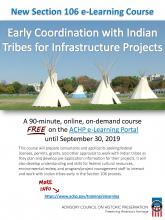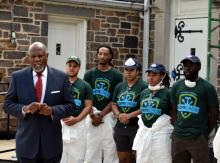ACHP Chairman Aimee Jorjani and members of the Advisory Council on Historic Preservation are expressing support for several important pieces of legislation that impact historic preservation. The ACHP voted at its summer business meeting on July 10 to support the Preserving America’s Battlefields Act; Restore Our Parks Act/Restore Our Parks and Public Lands Act; Historic Tax Credit Growth and Opportunity Act; and National Heritage Area Act.
Chairman Jorjani sent letters to members of Congress commenting on these bills.

 This summer, I was proud to participate in an internship, “Touching History: Preservation in Practice,” which introduces African American students to the field of historic preservation. This program was developed by the Advisory Council on Historic Preservation (ACHP), the National Park Service (NPS), and the National Trust for Historic Preservation’s Hands-On Preservation Experience (HOPE) Crew.
This summer, I was proud to participate in an internship, “Touching History: Preservation in Practice,” which introduces African American students to the field of historic preservation. This program was developed by the Advisory Council on Historic Preservation (ACHP), the National Park Service (NPS), and the National Trust for Historic Preservation’s Hands-On Preservation Experience (HOPE) Crew.
